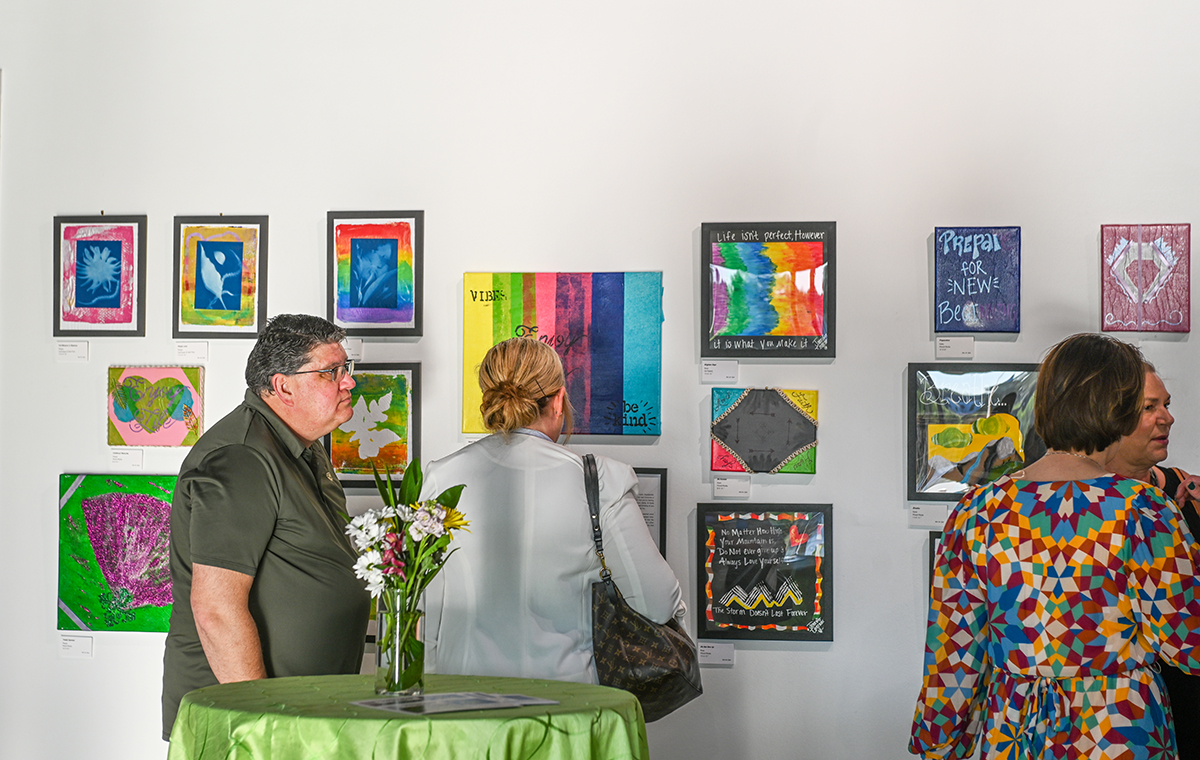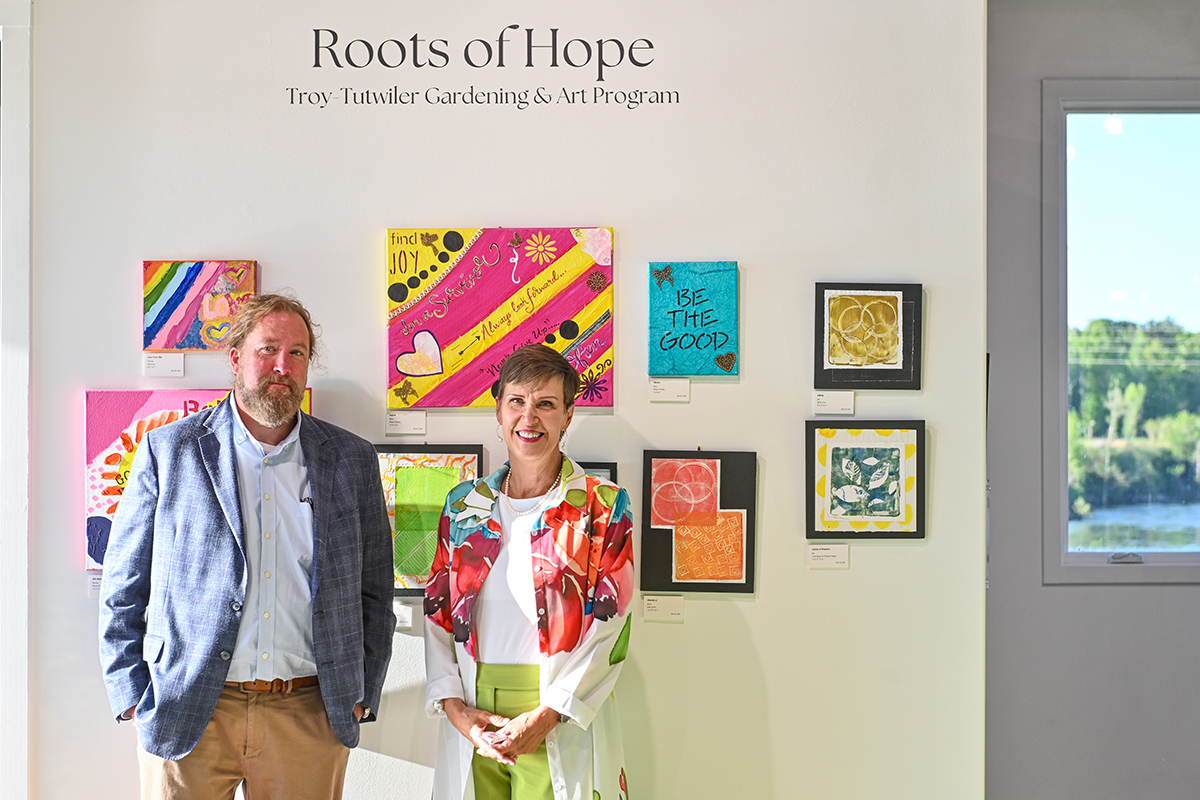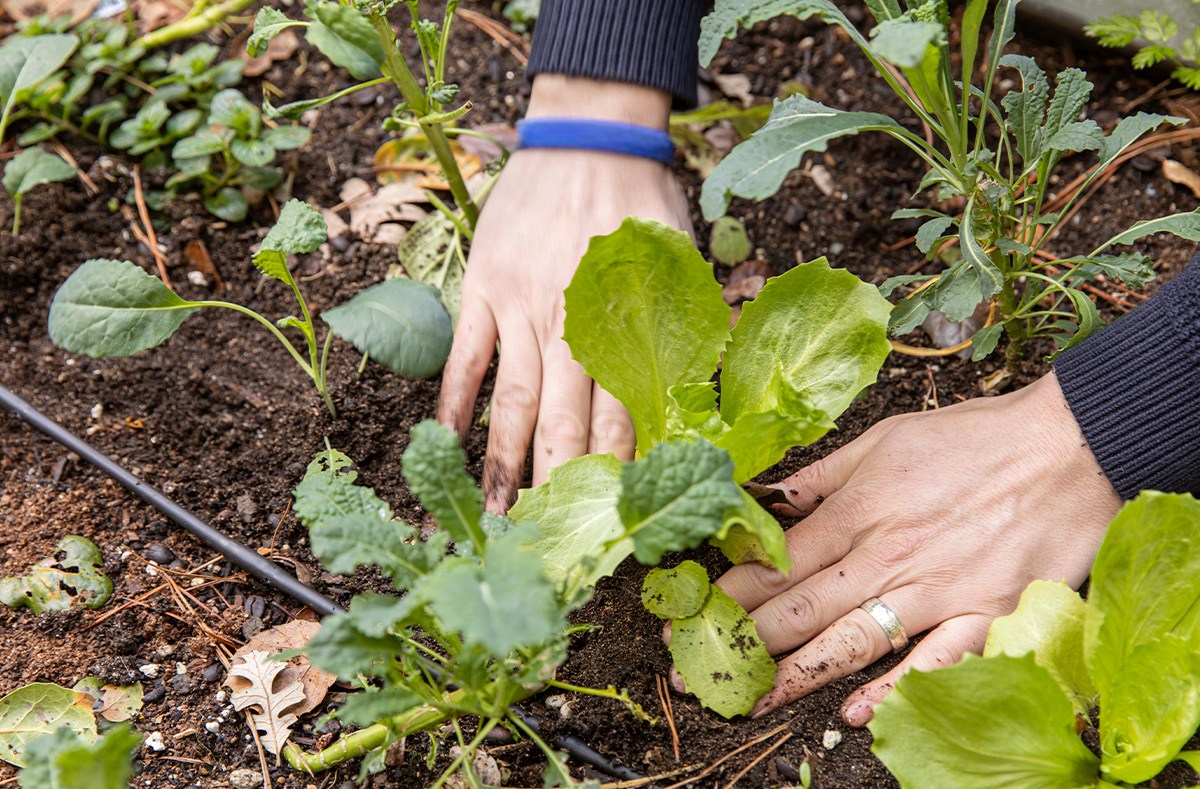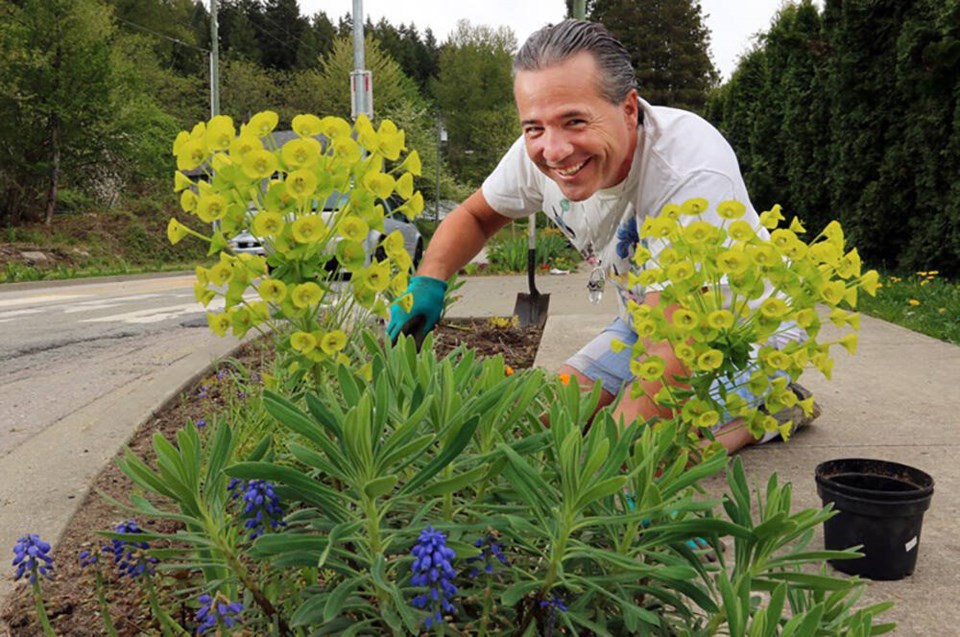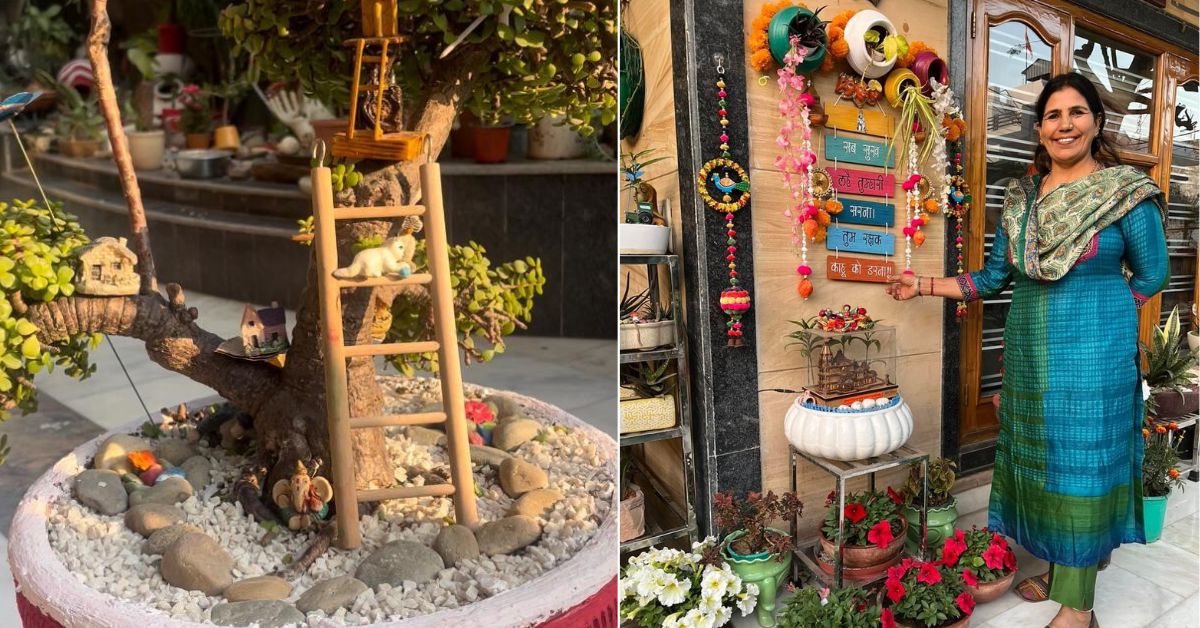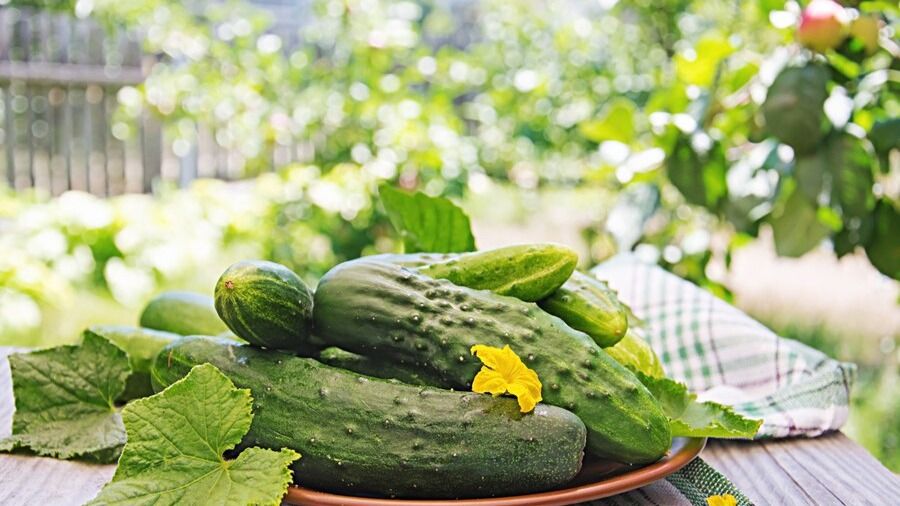Heading into its sixth year, Troy University and the Julia Tutwiler Prison for Women’s gardening and art class partnership has received a $10,000 grant from the Strickland Foundation, a non-profit organization based in Tennessee.
Now named Gardening in the Alabama Prison System (GAPS), the partnership formed in 2019 after Dr. Sharon Everhardt, Associate Dean for Administration in the College of Arts and Sciences, and Dr. Stephen Carmody, Chair of the Anthropology, Sociology and Criminology Department, researched food allocation and prisons. The courses span over 15 weeks and teach inmates about the fundamentals of gardening, horticulture and nutrition while giving them hands-on experience with growing a garden.
After two successful years, organizers broached the idea of offering art classes alongside the gardening course. Lead by Art and Design lecturer Dr. Kelly Berwager, the first painting course was held in the fall of 2021 and was the inspiration for an art exhibit, named “Garden of Perseverance,” which was featured in the International Arts Center in 2022.
Another art exhibit, titled “Roots of Hope,” was recently featured at The Kelly Fitzpatrick Center for the Arts in Wetumpka, Ala.
“This Gardening and Art Program gives us hope,” Berwager said. “One of the women said, ‘All of this is more than putting something in the dirt. Gardening is an art. Gardening is a visual and hands-on activity, but is also emotional.’ The intrinsic nature of what we do is what they remember. It’s not a drawing class, it’s not a gardening class—it’s the sense of community and what they get out of it.”
After an initial donation from the USDA, the program now relies solely on fundraising and donations. Earlier this year, Everhardt was contacted by Lena Levendoski, executive director of The Strickland Foundation, with the offer of a grant.
The Strickland Foundation was founded in 2019 by a longtime University of Alabama business professor and his wife. Famous for his speech on how to make $5 million, he put his strategy into practice and is now able to support charitable initiatives across the world.
“One of the things he talks about in that speech is the purpose of building wealth and saving money is so that later in life you can give it away,” she said. “He was walking the talk, and he did it. I know he knew it would work, but I don’t think he realized how well it would work.”
The Foundation supports a variety of programs ranging from anti-poaching and conservation efforts to hunger, children’s literacy and more. After the founders expressed an interest in serving women in prison, Levendoski began searching and discovered TROY’s partnership with Tutwiler.
“It’s one of those ideas that are so simple, but so obvious. Gardening can be very healing to the body, to the spirit and to the mind,” she said. “I called Dr. Everhardt and we had a great conversation. She’s very passionate about what she’s doing. Then my contact was shifted to Dr. Carmody and it was the same thing.
“It’s very powerful to talk to people who feel so strongly about this, and it’s easy to support.”
In addition to financial support, Levendoski has scheduled phone calls throughout the year for strategy sessions and guidance.
“My dad teaches strategy, and that’s the other part of this,” she said. “I explained to Dr. Carmody that this is not a call so he can tell me how he spent the money; it’s a call to talk about how it’s going, almost like a brainstorming call, because we’re invested in the program itself.”
The program offers beginner and advanced class options. There are currently five women in the advanced class and 14 starting the beginner’s course. Fifteen women have been with the program for more than two years, and five women have been a part of the program for all six years.
“This program is a big deal, and it matters. Dr. Everhardt and Dr. Carmody must really want this because it’s not easy what they’re doing,” she said. “They have so many roadblocks but they’re willing to do it anyway. This program can change people and help them change how they view their life.”
While only the partnership with Tutwiler exists at the moment, the goal is to have gardens in women’s prisons across the state and nation.
To view a gallery of the “Roots of Hope” exhibit, click here.
To make a donation to the garden project or art classes, click here. Art class donations should be designated or will otherwise go to the garden program.
